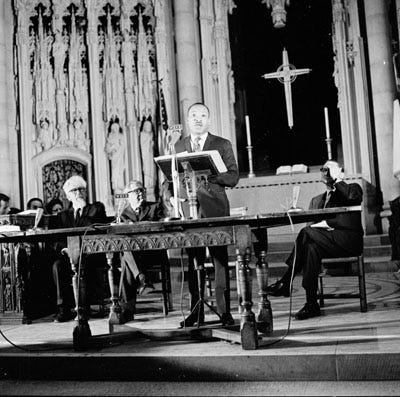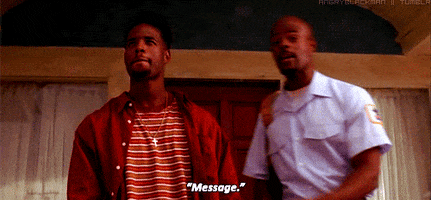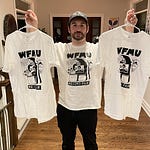Dr. Martin Luther King Jr. delivering this speech at Riverside Church in New York City on April 4, 1967.
In honor of MLK Day, I’d like to debut a recurring segment called “In Their Own Words”. This is the evolution a concept a few really smart people and I pioneered over on Clubhouse last summer. The goal is to showcase the opinions of a great thinker on a subject that's relevant to a current event. I try to prioritize either rare stuff from names you know vs random things you’ve never heard of. For longtime readers, you've already seen demos of this concept. Essentially, this is a leveled-up version of #136. Sound good?
I have a pretty good assumption this will be the first time you’ve ever heard this speech. That is likely because, without a doubt, this was King’s most controversial speech. It was so intense that even some members of his staff warned him not to give it. Consider all that happened to that man up until 1967. They were that worried about it. This speech is where a lot of people turned on King.
Do you want to know what cancel culture really looks like? After this speech, King’s popularity dove, losing tons of longtime supporters — of all colors. His critics called the address too radical. His fellow civil rights leaders criticized him, and major newspapers told him to stick to civil rights. (Heard that one before?) President Lyndon B. Johnson even stopped speaking to King.
This speech is why we should honor the man today. The courage that King demonstrated here is otherworldly. By this point, he was already beyond popular. King could have ridden his acclaim after the March on Washington to shift into the book and lecture circuit or even political office. Instead, he chose to put principle over his popularity. He put the needs of the culture over his clout.
After this speech, King took efforts to broaden his efforts towards causes like workers rights of all colors, while continuing to oppose the war. One year later—to the day—that this speech was given, King was assassinated in Memphis.
DO NOT TRUST OR LISTEN TO THE OPINIONS OF ANYONE TALKING ABOUT MLK TODAY WHO HAS NOT HEARD THIS SPEECH.
You can read the whole thing here, but you should do yourself a favor and listen to this. It’s one of the greatest speeches of all-time.
Here’s a few select bars, all emphasis is mine:
“Five years ago, the late John F. Kennedy said, “Those who make peaceful revolution impossible will make violent revolution inevitable.” [applause] Increasingly, by choice or by accident, this is the role our nation has taken, the role of those who make peaceful revolution impossible by refusing to give up the privileges and the pleasures that come from the immense profits of overseas investments. I am convinced that if we are to get on to the right side of the world revolution, we as a nation must undergo a radical revolution of values. We must rapidly begin the shift from a thing-oriented society to a person-oriented society. When machines and computers, profit motives and property rights, are considered more important than people, the giant triplets of racism, extreme materialism, and militarism are incapable of being conquered.”
“A few years ago there was a shining moment. It seemed as if there was a real promise of hope for the poor, both black and white, through the poverty program. There were experiments, hopes, new beginnings. Then came the buildup in Vietnam, and I watched this program broken and eviscerated as if it were some idle political plaything on a society gone mad on war. And I knew that America would never invest the necessary funds or energies in rehabilitation of its poor so long as adventures like Vietnam continued to draw men and skills and money like some demonic, destructive suction tube. So I was increasingly compelled to see the war as an enemy of the poor and to attack it as such.”
“A nation that continues year after year to spend more money on military defense than on programs of social uplift is approaching spiritual death.”
The Americans are forcing even their friends into becoming their enemies. It is curious that the Americans, who calculate so carefully on the possibilities of military victory, do not realize that in the process they are incurring deep psychological and political defeat. The image of America will never again be the image of revolution, freedom, and democracy, but the image of violence and militarism.
“We are taking the black young men who had been crippled by our society and sending them 8,000 miles away to guarantee liberties in Southeast Asia which they had not found in Southwest Georgia and East Harlem. So we have been repeatedly faced with the cruel irony of watching Negro and white boys on TV screens as they kill and die together for a nation that has been unable to seat them together in the same schools. We watch them in brutal solidarity burning the huts of a poor village, but we realize that they would hardly live on the same block in Chicago.”
“It is a sad fact that because of comfort, complacency, a morbid fear of communism, and our proneness to adjust to injustice, the Western nations that initiated so much of the revolutionary spirit of the modern world have now become the arch anti-revolutionaries.”
SUPPORT THIS THING:
Did you know that for less than it costs to get a bucket of beers, you can support an independent media startup?
Become a paid supporter of Office Hours with Ernest Wilkins on an ongoing basis today. $7 a month or $75 a year.
Can’t do a paid subscription right now? Consider showing your support for my work with a one-time donation!













#157: A Time to Break the Silence